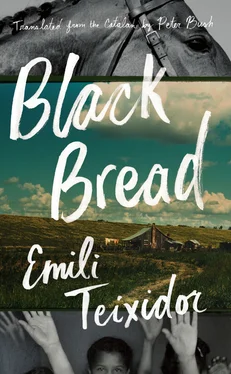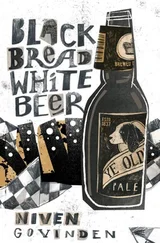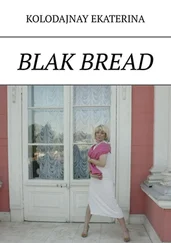Emili Teixidor - Black Bread
Здесь есть возможность читать онлайн «Emili Teixidor - Black Bread» весь текст электронной книги совершенно бесплатно (целиком полную версию без сокращений). В некоторых случаях можно слушать аудио, скачать через торрент в формате fb2 и присутствует краткое содержание. Год выпуска: 2016, Издательство: Biblioasis, Жанр: Современная проза, на английском языке. Описание произведения, (предисловие) а так же отзывы посетителей доступны на портале библиотеки ЛибКат.
- Название:Black Bread
- Автор:
- Издательство:Biblioasis
- Жанр:
- Год:2016
- ISBN:нет данных
- Рейтинг книги:3 / 5. Голосов: 1
-
Избранное:Добавить в избранное
- Отзывы:
-
Ваша оценка:
- 60
- 1
- 2
- 3
- 4
- 5
Black Bread: краткое содержание, описание и аннотация
Предлагаем к чтению аннотацию, описание, краткое содержание или предисловие (зависит от того, что написал сам автор книги «Black Bread»). Если вы не нашли необходимую информацию о книге — напишите в комментариях, мы постараемся отыскать её.
Born in 1933,
's first novel,
, was published to tremendous acclaim in 1988, followed by several more which established him as one of Spain's greatest contemporary authors.
Black Bread — читать онлайн бесплатно полную книгу (весь текст) целиком
Ниже представлен текст книги, разбитый по страницам. Система сохранения места последней прочитанной страницы, позволяет с удобством читать онлайн бесплатно книгу «Black Bread», без необходимости каждый раз заново искать на чём Вы остановились. Поставьте закладку, и сможете в любой момент перейти на страницу, на которой закончили чтение.
Интервал:
Закладка:
Mr. Madern, the teacher at the Novíssima, and the priest at the town parish school agreed to let me come and go, because as they said, I was more advanced than pupils of my year in either school, particularly in reading and arithmetic that, they insisted, were the two keystones, “reading, writing and the basics.”
My appearances and disappearances added to my prestige in both classes, as did the rumours about my father in prison. Whenever I came to one of the schools, especially over the first few days, my mates observed me with a respect and consideration they didn’t feel towards each other, as if I was a disturbing apparition, and should be bringing them news from another planet, or I was enjoying an adventure in freedom that they envied, trapped as they were in a fossilizing routine. That also allowed me to view the world of the farmhouse and my home with fresh eyes every time — as well as the people inhabiting them — it created a distance that made me a stranger in both places, as if another person were living in my shoes. A fragmented life I now observed more carefully than I used to when I didn’t live a fractured existence, and each fresh encounter with my cousins, aunts and uncles, grandparents or Mother was like an addition of new knowledge, a discovery of new features that changed my perspective on all of them. This was true in regard to everyone, especially my mother.
She had always deeply admired her friend the factory owner Dolors Cerdà, Napkin Lolita or Fatibomba, who’d been able to save a small factory as tiny as a clenched fist that she now ran by herself, after her husband and son had been killed at the start of the civil war, and she managed that factory her husband had bequeathed her in the teeth of silent opposition from the bigger factory owners who, for some reason, couldn’t stand her and put every possible hurdle in her way to try to make her business go bust, so they could take it over. Perhaps because its tiny size had spared it the requisitions other firms had suffered at the hands of the revolutionary factory committees? Mother and Napkin Lolita — whom I had to call Mrs. Dolors — were friends and I think my mother would have liked to own a factory like her. She admired the success and freedom economic well-being brought. That was why I wasn’t surprised by their discreet exchanges. I would wonder how she’d managed to find such pretty items of clothing or the boxes of balls of thread that smelt of the garden or metal spare parts, small wheels, little cogs, spanners, hammers, tool boxes and so on. Nevertheless, in a period when a bar of chocolate or fresh white loaf was a surprise treat, when we’d manage to eat something every day at home, even though there was a difficult period when we were forced to ration everything and divide the bread three ways, one chunk per member of the family, eking it out as best we could and asking for more two or three days later when there’d be more rations available or the basket of provisions arrived from the grandparents’. At first the presence of those rare items, that turned up at the bottom of the dirty clothes basket or the most secret drawer in the bedroom wardrobe, seemed like symptoms of Mother’s efficient management, products of her absolute power, small miracles of chance like the ones she worked every day so we could keep the pot on the boil, as she’d put it.
I watched those transactions from afar in my bedroom, and their everyday normality granted an air of homely legality, like selling a rabbit or chicken from the coop to the woman next door. A diffuse, unconscious thought attributed those manoeuvres and items to help from Napkin Lolita or one of Mother’s other friends. In the end perhaps she was even doing them a favour by relieving them of damaged goods they couldn’t sell to shops. However, those scenes became etched deep in my brain where I knew I could find them some day. There were episodes I stored away unlabelled, with no judgment passed, though I knew that at some stage, in some measure, they might help protect me against that miracle woman’s harshness, a life-buoy to ensure I didn’t drown in the sea of the demands made by her feelings.
Father was different. Too good, said Mother. Too handsome, I heard Aunt Ció, his sister say. Too political, said Dad Quirze. Mother adored him. Literally adored him. Mother wouldn’t lift a spoon at the meal-table until Father had tried and approved each dish and wouldn’t start eating until he’d swallowed his first mouthful. After each meal that she cooked and served him up so lovingly, she’d sit and watch him take out a packet of tobacco and cigarette paper and slowly roll himself a smoke, very aware of the power of attraction he wielded over his wife and son for quite different reasons.
Before he was jailed and fell ill, he looked like a movie actor disguised as a worker. He was conceited and I never saw a single hair on his head out of place. He never used brilliantine or cream, but it was always beautifully combed with a parting on the left, above a smooth, shaven neck. Even when he wore a mechanic’s blue overall he retained the elegant details that distinguished him, like his immaculate white scarves, shiny polished shoes and black socks—“Your socks must always be black, my boy,” he’d tell me, “you can never go wrong with black, black goes with everything, because other colours stand out a lot and a colour must really match your shoes and suit if you’re not going to look like a clown”—and perhaps a dapper little neckerchief.
He worked as a mechanic in a repair workshop in Vic and no factory manager in our town would take him on, least of all the textile factory where nearly all the men worked, because, according to Mother and Grandmother, “he stood out too much” before and after the war. My parents opened a small grocery store years before the war, just after they married and set up in the small factory town, having departed the farmhouse they’d left in the hands of his sister Ció and her husband, Dad Quirze. The character of my paternal grandfather, a man I never knew, had been instrumental in my father’s decision to give up life on the farm. It seems my dead Grandfather was a fiendishly difficult man, prickly as a hedgehog, who insisted that his sons do a farmhand’s work without pay, on the excuse that they were working for themselves, that they were the masters and that everything they saved today they would reap on the day in the future when they inherited the farm.
Father and son didn’t get on at all. Perhaps if my prickly grandfather had died earlier, they’d have got on better with Grandfather Hand, who was an easygoing fellow, and wouldn’t have left the land. Mother said my father was dead set on finding other work, on doing something else. Father didn’t want to spend his whole life on the land, he wanted to go to night school and learn to repair and drive cars and get involved in the political and social movements that were organizing in the villages around the farm. Father “had ideas,” as Mother put it, and joined a left-wing party unbeknown to everyone, though they never said which it was.
Mother was the second of twelve children in a farming family, from the most remote, sparse area of Les Guilleries. By the age of nine or ten she was working in the Boixets’ factory, in the small town where she later went to live with Father. They worked a ten-hour day and some of the working girls were so small they had to stand on bobbin boxes so they could tie the threads on the spinning machines. Ten hours labouring until the eight-hour day was imposed and a day of rest on Sunday. And a ban on children under ten working. However, by that time she was fourteen or fifteen and people were dreaming of what they called “the English week”—“ anglesa ” on her lips — so as not to work on Saturdays. It was over an hour to go and come back from the factory, carrying the basket with our supper. She met two other girls more or less her age on the way, one from La Bruguera and the other from El Pradell, at a spot called “the Rock of Light” because the people in the nearby El Pradell farm placed an oil lamp on a boundary stone at night to guide the girls returning home from the night shift. Mother told us about the pranks the three girls got up to on the way there and back, from crossing barefoot the stream that flowed into the River Ter to scrumping in the orchards of the wealthy. When she reminisced about those times, my mother smiled with an inner contentment as if she was describing the happiest days of her life.
Читать дальшеИнтервал:
Закладка:
Похожие книги на «Black Bread»
Представляем Вашему вниманию похожие книги на «Black Bread» списком для выбора. Мы отобрали схожую по названию и смыслу литературу в надежде предоставить читателям больше вариантов отыскать новые, интересные, ещё непрочитанные произведения.
Обсуждение, отзывы о книге «Black Bread» и просто собственные мнения читателей. Оставьте ваши комментарии, напишите, что Вы думаете о произведении, его смысле или главных героях. Укажите что конкретно понравилось, а что нет, и почему Вы так считаете.












